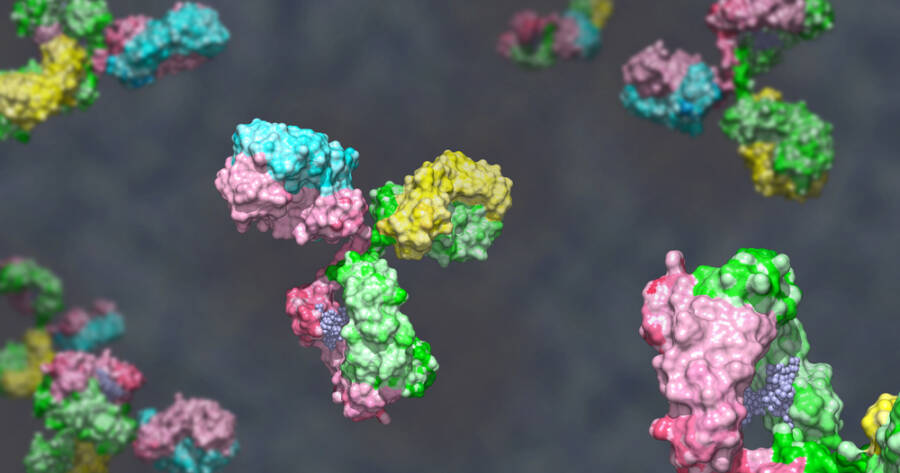Antibody-drug conjugates, particularly bispecific antibodies, represent a transformative advance in cancer treatment, combining targeted precision with potent efficacy. Innovative therapies expand the cancer treatment landscape, addressing previously resistant conditions. From managing associated toxicities to optimizing therapeutic strategies, it’s key to understand the critical facets of deploying groundbreaking solutions in oncology.
Advancements in Antibody-drug Conjugates
Antibody-drug conjugates (ADCs) are a groundbreaking class of targeted cancer therapies that fusion the specificity of antibodies with the potent cell-killing capability of cytotoxic drugs. These conjugates provide a promising avenue for the treatment of various cancers, including challenging cases of relapsed or refractory lymphomas. Amongst the most innovative developments in this domain are bispecific antibodies, engineered to engage with two distinct targets simultaneously. This dual-targeting capability expands their therapeutic applications significantly in cancer treatment compared to traditional monoclonal antibodies.
Given their unique structure and functionality, ADCs like bispecific antibodies offer enhanced effectiveness against tumors, leading to improved patient outcomes. They provide new solutions for cancer communities, managing conditions that were traditionally resistant to treatment options. However, as with any powerful medical innovation, ADCs bring their own set of challenges, particularly concerning the management of associated toxicities.
Managing Toxicities in Bispecific Antibody Therapy
The unique design of bispecific antibodies, while expanding therapeutic efficacy, introduces specific toxicity risks that require diligent management. Adverse effects such as cytokine release syndrome (CRS) and immune effector cell-associated neurotoxicity syndrome (ICANS) are prevalent with these therapies. Consequently, healthcare providers have developed detailed management protocols to mitigate these issues. The integration of supportive care, proactive monitoring, and intervention strategies are pivotal in ensuring patient safety and maximizing therapeutic benefits.
Strategies employed in mitigating toxicity include the administration of prophylactic tocilizumab for CRS, as well as at-home dexamethasone to manage neurotoxicity. Maintaining hydration and adjusting infusion rates are also critical components of managing patient safety during treatment. Continuous education of both healthcare teams and patients is emphasized to enhance the management effectiveness, ensuring that those receiving therapy remain informed and supported throughout the process.
Innovative Protocols and Patient Care Strategies
As the application of bispecific antibody therapies grows, new protocols have been developed to improve the delivery and management of these innovative solutions. By transitioning some treatments to outpatient settings, a more flexible and accessible approach has been adopted to ease patient experience while efficiently managing side effects. The interplay between effective management strategies and innovative treatment protocols is integral in optimizing outcomes for patients undergoing bispecific antibody therapy.
Clinics are beginning to adopt sophisticated tools such as the “Adverse Event Management Playbook,” designed to provide healthcare professionals with structured plans for addressing treatment-related adverse events. These comprehensive guidelines form a cornerstone of improved patient care, enabling informed decision-making and adaptability in treatment administration. Furthermore, the multidisciplinary care approach involving oncologists, pharmacists, and nurses ensures that patients receive holistic care tailored to their specific needs.
Future of Bispecific Antibody Solutions
The continuous evolution of bispecific antibodies paves the way for unprecedented treatment opportunities in oncology. With ongoing research and development, the potential to integrate these therapies with existing cancer treatments, such as chemotherapy and other immunotherapies, continues to broaden the therapeutic landscape. This expansion is particularly evident in the treatment of multiple myeloma, where bispecific antibodies, like BCMA-directed therapies, are actively explored as either standalone treatments or in combination for enhanced efficacy.
Innovative sequencing and strategic planning of treatments are essential to harness the full potential of bispecific antibodies, ensuring that patients benefit from optimized therapies and minimized toxicity. As researchers delve deeper into understanding these therapies, the future of bispecific antibodies holds great promise for transforming cancer care, offering patients more comprehensive and effective treatment options.
Learn More About Antibody-drug Conjugates
The development of antibody-drug conjugates, particularly bispecific antibodies, marks an exciting era in targeted cancer therapy. These therapies represent a significant leap forward in oncological treatments, offering new options for conditions previously deemed untreatable.
As these therapies continue to evolve, staying informed about the latest advancements and strategic management practices is crucial for healthcare providers, patients, and caregivers alike. Understanding the nuances of these innovative solutions enables individuals to make informed decisions, optimize treatment outcomes, and navigate the complexities of modern cancer care with greater confidence and efficacy.
Sources
Insights into bispecific antibodies
